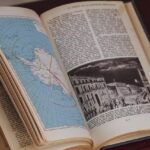AI-Assisted Exploration: Unlocking the Past and Understanding Cultures with ChatGPT
Key Takeaways:
- ChatGPT can provide extensive insights into historical events, cultural practices, and societal evolutions, serving as a resourceful research tool.
- Using ChatGPT simplifies complex historical and cultural inquiries, delivering structured and detailed information in seconds.
- Researchers and enthusiasts leveraging ChatGPT report increased efficiency in gathering context and finding connections across historical and cultural topics.
- ChatGPT’s ability to present multiple perspectives makes it a valuable aid in understanding nuanced cultural and historical narratives.
Cultural and historical research often involves piecing together intricate details to understand events, traditions, or societal shifts. ChatGPT, a conversational AI developed by OpenAI, offers a novel way to approach this research, providing quick access to broad information while guiding users through the intricacies of their inquiries. Whether you’re an academic, a student, or a curious learner, ChatGPT can be your partner in exploring the vast expanse of human history and culture.
Strategies for Using ChatGPT in Cultural and Historical Research
1. Exploring Historical Events
ChatGPT can summarize key events, analyze their causes and effects, and even compare similar occurrences across different eras or regions.
- Prompt Example: “Summarize the key causes and outcomes of the French Revolution in under 300 words.”
2. Understanding Cultural Practices
Gain insights into the traditions, customs, and beliefs of different communities. ChatGPT can provide detailed explanations of cultural phenomena, their origins, and their evolution over time.
- Prompt Example: “Explain the significance of the Diwali festival in Indian culture and how it is celebrated today.”
3. Drawing Cross-Cultural Comparisons
Use ChatGPT to compare cultural practices, philosophies, or historical developments across different regions or periods.
- Prompt Example: “Compare the philosophical ideas of Confucianism in China and Stoicism in Ancient Greece.”
4. Analyzing Historical Figures
ChatGPT can outline the lives and legacies of prominent historical figures, their contributions, and their impact on society.
- Prompt Example: “Provide an analysis of Mahatma Gandhi’s leadership style and its influence on global civil rights movements.”
5. Contextualizing Art and Literature
Explore the historical and cultural contexts behind famous works of art, literature, or architecture. ChatGPT can link these creations to the periods and societies they emerged from.
- Prompt Example: “What cultural and historical factors influenced Vincent van Gogh’s work in the late 19th century?”
6. Generating Research Questions
ChatGPT can help frame research questions for deeper inquiry, making it a valuable tool for students, academics, and independent researchers.
- Prompt Example: “Suggest research questions for studying the role of women in the Industrial Revolution.”
7. Exploring Primary and Secondary Sources
While ChatGPT doesn’t access real-time data or primary documents, it can suggest where to find relevant primary and secondary sources for your research.
- Prompt Example: “What are some primary sources available for studying the American Civil War?”
Benefits of Using ChatGPT for Cultural and Historical Research
- Efficiency: Quickly delivers concise summaries and detailed explanations, saving hours of manual research.
- Accessibility: Provides a wealth of information on diverse topics, making historical and cultural knowledge more accessible to everyone.
- Diverse Perspectives: Offers multiple viewpoints on historical events and cultural practices, fostering a deeper understanding.
- Simplified Learning: Breaks down complex subjects into easily digestible parts, aiding both novices and experts.
Ethical Considerations
While ChatGPT is a powerful tool, it’s essential to cross-reference the information with credible academic sources, as the AI is not immune to inaccuracies or biases.
Conclusion
ChatGPT is revolutionizing the way cultural and historical research is conducted. By offering fast, accessible, and detailed insights, it empowers researchers, educators, and enthusiasts to delve deeper into the past and better understand the world’s rich tapestry of cultures. Whether you’re preparing a presentation, writing a paper, or satisfying personal curiosity, ChatGPT can be your gateway to a wealth of knowledge, making history and culture come alive in new and engaging ways.




























